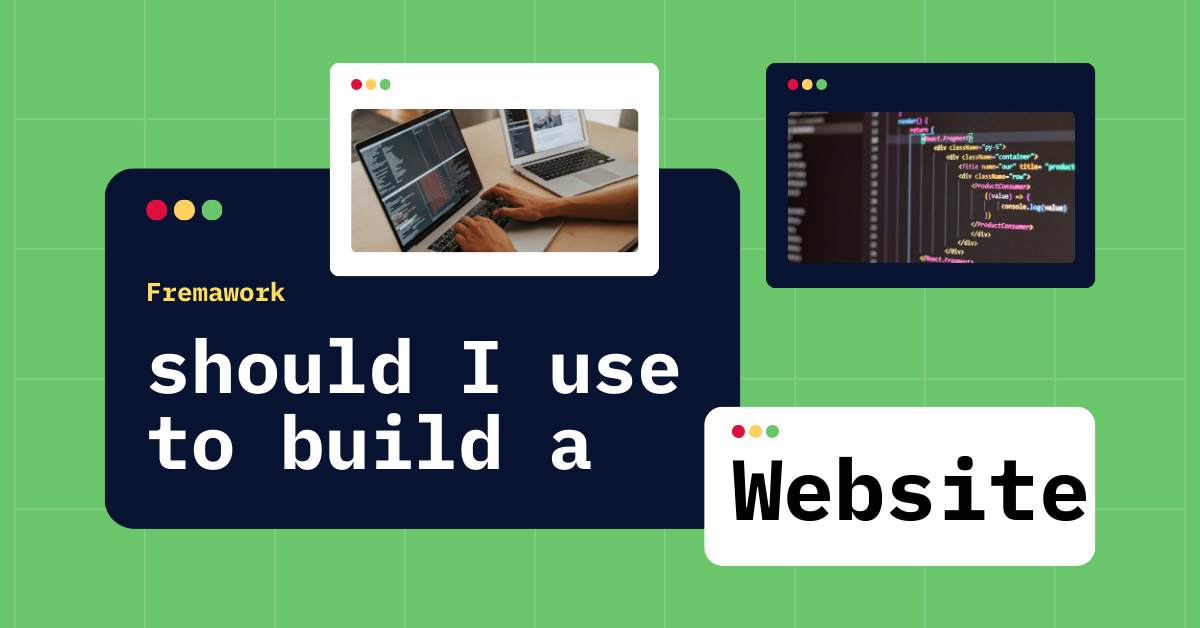
What framework should I use to build a website?Choosing the right framework to build a website is important to ensure efficiency, scalability, and ease of maintenance. While there are many options available for building a website, choosing the best framework is up to you, depending on the type of project you are building. In this guide, we will learn about the most popular web development frameworks, their advantages, and how to choose the best framework for your website.
What is a Web Framework
Framework Should I use to build a website? What is a web framework? Let’s understand it. Web framework WF or Web Application Framework WAF is a software framework. It is designed so that it can support the development of web applications, including web services, web resources, and web APIs. This web framework provides a standard way to create web applications on the World Wide Web. The purpose of a web framework is to automate the overhead associated with the activities performed in web development. To understand this, you can see their examples; web frameworks provide libraries for database access, templating frameworks, and session management, and they often promote code reuse.
Step 1: Understanding Web Development Frameworks
A web development framework is a pre-built structure that simplifies the process of creating websites and applications. Frameworks provide libraries, templates, and best practices to make coding faster and more secure. They are divided into two main types:
1. Frontend Frameworks: Used for designing the visual and interactive parts of a website (e.g, React, Vue.js, Angular).
2. Backend Frameworks: Used for managing the database, user authentication, and business logic (e.g, Django, Laravel, Express.js).
Step 2: Popular Frontend Frameworks
1. React.js
Best for: Dynamic and interactive user interfaces.
Pros:
• Component-based architecture.
• Large community support.
• Efficient state management with React Hooks.
Cons:
• Requires additional libraries for state management and routing.
• Steeper learning curve for beginners.
2. Vue.js
Best for: Beginners and small to medium-sized applications.
Pros:
• Easy to learn and use.
• Flexible and lightweight.
• Good integration with existing projects.
Cons:
• It is a smaller community compared to React.
• Limited third-party plugins.
3. Angular
Best for: Enterprise-level applications and single-page applications (SPAs).
Pros:
• Built-in tools for routing and state management.
• Strong support for TypeScript.
• High Scalebility.
Cons:
• Steep learning curve.
• Heavier compared to React and Vue.
Step 3: Popular Backend Frameworks
1. Django (Python)
Best for: Secure and scalable web applications.
Pros:
• Rapid development with built-in features.
• Strong security measures.
• Scaleable for large applications.
Cons:
• It can be too complex for small projects.
• Requires knowledge of Python.
2. Laravel (PHP)
Best for: Web applications with a structured backend.
Pros:
• Elegant syntax and easy routing.
• Built-in authentication and features.
• Good for API development.
Cons:
• Slower compared to Node.js frameworks.
• Requires knowledge of PHP.
3. Express.js (Node.js)
Best for: Fast and scalable server-side applications.
Pros:
• Lightweight and flexible.
• Works well with front-end frameworks like React.
• Large ecosystem of plugins and tools.
Cons:
• Lacks built-in security features.
• Requires additional libraries for full functionality.
Step 4: Choosing the Right Framework
Factors to Consider:
1. Project Type
2. Easy to learn
3. Performance & Scalability
4. Community Support
Advantages of Using Frameworks
Using a framework provides several advantages, including:
1. Faster development
2. Code Reusability
3. Consistency & Standardization
4. Security
5. Scalability
6. Ease of Maintenance
7. Community Support
8. Better support
Conclusion
Choosing the right framework depends on your needs and technical expertise. If you are new to this field, Vue.js or Laravel are great starting points. For large-scale applications, React, Angular, and Django offer robust features. Ultimately, the best framework is the one that aligns with your development workflow and project requirements. (Read More)
“If you want to know How To make a small business Website in 2025, don’t worry. You can read this article.“
Frequently Ask Questions
1) Which Framework should be used to build a website?
1. Django
2. Express.js
3. Vue.js
4. React
5. Laravel
2) What framework should I use to build a portfolio website?
To build a great portfolio website, consider these JavaScript frameworks: React.js is good for sites that need multiple parts to work together.
3) Is Bootstrap an HTML framework?
The Bootstrap framework is built on Hypertext Markup Language (HTML), Cascading Style Sheets (CSS), and JavaScript.
4) Which web development course should I take?
That is javascript, and you can learn. It’s a very important web development course.

Pingback: Build a Website for a Consulting Business in 2025. Full Guide. Good or Bad.